"Never underestimate the ability of a small group of committed individuals to change the world" - Margaret Mead. Throughout history, there have been great figures who pose as role models for society.
From Einstein to Mother Theresa, they all share a common trait that is perseverance. In this article we learn about a remarkable figure named Franz Boaz "The Father of American Anthropology". Followed by seeing how his hard work is celebrated and makes a big impact for many.
Humble beginning

Franz Boaz was born in 1858 in Minden (Westphalia), Germany, and life begins. Although he was born in Germany and grew up, his family is of Jewish descent.
Apart from this, he and his family identified themselves by imitating liberal ideologies and individualism. Young Franz became interested in appreciating the crucial knowledge of books.
As he progresses through the school years, he also becomes interested in subjects such as science and culture. These subjects are continued when he enters his further studies at the universities of Heidelberg, Bonn and Kiel. From there he gets a PH. D. in Physics.
Franz proved worthy of completing his studies. From then on, he swore to pursue greater endeavors regarding his passion for culture. This, in turn, marked the beginning of something great for the Father of American Anthropology.
Anthropology seeds are planted
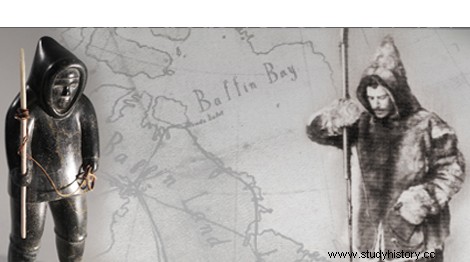
In 1883, Boas begins his first groundbreaking field research on Baffin Island (North Coast of Canada). After serving in the military for a year in his home country, he gets the chance to travel to Canada.
This is an exciting feat for Franz to follow because he learns about Inuit culture and their society. An important discovery he made after spending time with the natives of the area was that there is a common ground.
This means that "All societies were fundamentally equal" rather than the dominant belief that someone outside Europe was smaller. This was a key factor for Franz because it served as his main purpose for him to change career paths.
Suddenly, Franz was more fascinated by studying people and culture than his original purpose in the world's natural environments. In summary, Franz Boa's interest in anthropology flourished.
More groundbreaking discoveries from Baffin Island
In addition to giving Franz Boas the chance to study the Inuit and open his eyes to other cultures, he matures. In the era in which Franz lived, racial ideology was quite partial.
This was especially surprising for Franz to witness errors in his studies. For example, he concluded that "People just need to be understood in their cultural context".
Although we speak different tongues, vary in skin color and imitate unique customs, we all share abilities and heart. After his time on the island, Franz got the chance to attend and work at the Chicago World's Fair.
The theme took place in 1893 and highlighted the four-hundredth anniversary of Christopher Columbus' arrival in America. This was another breakthrough for him because he and his crew created anthropology exhibitions of the Indians. In addition, it proved successful in showing the audience the most realistic depictions of what life was like then. It was widely celebrated.
The exhibition
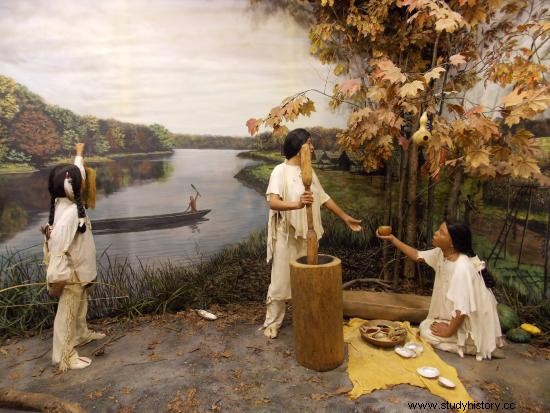
After these exciting events took place, Franz Boas got the chance to travel back north to British Columbia. His original purpose is to collect material related to the indigenous cultures for his research.
Here he made a replica village exhibition for visitors to learn more about the local culture of the indigenous people. Furthermore, he invites members of the Kwakwaka'wakw tribe to live in the village replica.
The purpose of this request was to show an intimate example of the tribe's life and paths for newcomers. It became a bit difficult only when there were victims and parts to contribute.
In addition, some visitors who were not open to learning gave a lot of frustration. All in all, this action was recognized for his constant efforts to educate others.
Settle in America
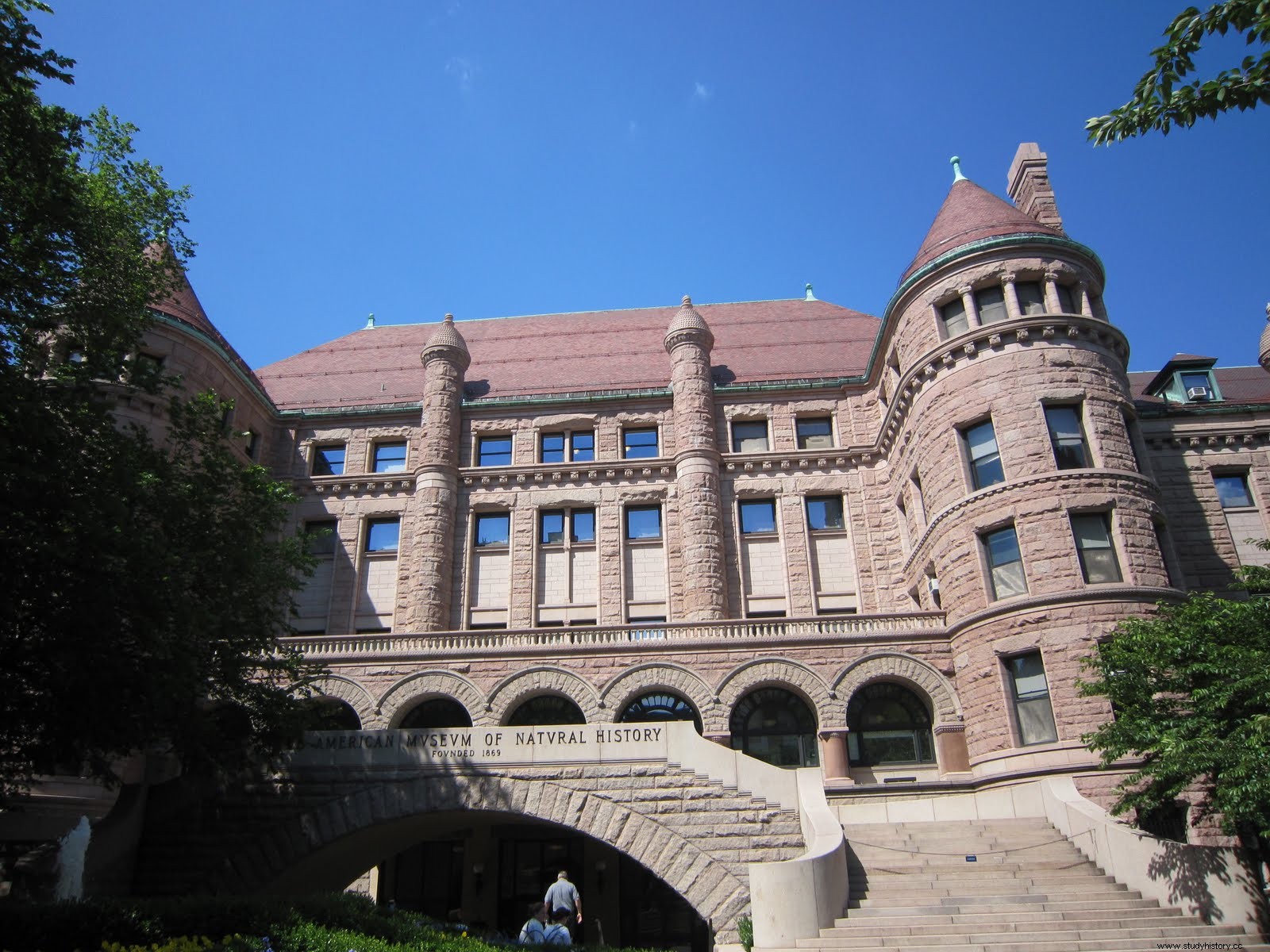
After working and delivering materials to be used for the founding of the Chicago Field Museum, Boas moves. He settles in New York and gets the position of assistant curator at the American Museum of Natural History.
A unique perspective he uses on his work at the museum is to present transported cultural objects in their original state. Instead of recreating them in a way that washes away their former glory, he promotes their originality!
Franz Boa's work in anthropology did not go unnoticed when he became a leading figure in research and development. Followed by the ignition of the launch of the museum's Northwest Coast Hall in 1890.
This institution highlights exhibits about the lives and cultures of indigenous peoples in North America. Franz Boas continued to work at the museum for fifteen years until his ambitions turned to education. All in all, his discoveries of anthropology flourished into other aspects of the discipline.
Additional projects and challenges
While working for the American Museum of Natural History, Franz Boas organized another expedition to British Columbia. This focused on creating exhibitions that reflected the natural habitat of the indigenous people in the region.
As it became innovative for him to try to get another chance to practice his faith, it created problems for him. Instead of following the original goal of placing all the tribes in a single exhibition, he separated each.
Furthermore, he respected their unique ways and tongues and tried to create their own set of individual exhibitions. One of the most important things about Franz Boas was that he believes in pursuing individualism and truth.
The work's approach to grouping different indigenous groups together without proper representation is what pressured him to perform his actions.
Part of his core motivation regarding anthropology is that all people share the same abilities. Besides, everyone deserves to be properly represented.
Birth of Anthropology in America

In 1899, Franz Boas became the first ever professor of anthropology at Columbia University. He gave regular and stimulating lectures to many questioning students in this new subject.
Along with this information, he also helped establish the department. This also became the first PHD study in America.
For this reason, Franz Boas is considered the "father of anthropology" because he taught the first generation of American scientists. Although the field is new and there was a lot to learn and develop, this was another breakthrough. Franz Boa's life and career took off and got smooth terrain!
Some famous students of his consisted of anthropologist Margaret Mead, Ruth Benedict and author Zora Neale Hurston. As Franz's ambitious actions are implanted in questioning minds, students establish his anthropological departments throughout the country.
From California, Chicago, Washington, Florida, and so on, the subject of anthropology is recognized and celebrated by many.
Anthropology ideas and theories basis
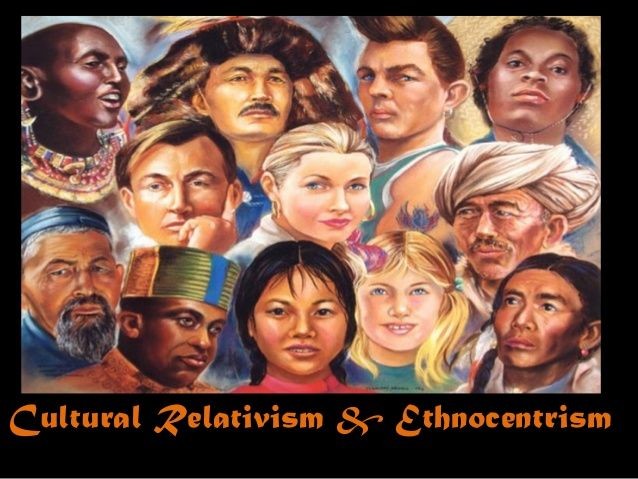
When it comes to anthropology becoming a newly introduced subject in America, a set of ideas and theories is developed. For example, Boas is recognized for the concept of "cultural relativism".
This emphasizes the idea that all cultures are equal, but must be identified on their terms. An interesting illustration he demonstrates to others with his idea is by comparing an apple and an orange.
The fruits indicated the physical differences, but promoted awareness of livelihoods. For Franz Boas, no culture is bigger than the other, they simply vary.
Although human ethnicities in his day were compared on a scale of greatest to least, he proved that this was wrong. It was a breakthrough for many as old partial faith came to a different light. As shown above, his work becomes revolutionary for his time.
Additional ideas and theories
In addition to Franz Boas showing memorable illustrations of his ideas and theories, there are several background details to his driving force. As anthropology was recognized as a discipline, Franz Boas also established the four-field approach.
Of course, anthropology is known for studying culture and experience and uniting different sub-subjects, but this develops further. The four-field approach promotes complete understanding and enlightenment of what cultures are really about.
From behavior, history, materials, anatomy, population, customs, social organization, folklore, grammar and language use, he strives to uncover all layers. The idea is exciting and thrilling because it continues to be pursued in modern American universities.
In addition, it advocates the removal of the ignorance of different cultures and civilizations.
An Anthropologist's Achievements Over Time
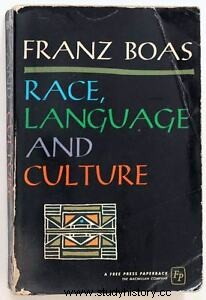
Through Franz Boa's later life and career, he achieves many achievements that continue to be celebrated and admired. In addition, some pioneering actions are responsible for the foundations of organizations such as The International Journal of American Linguistics.
Some other institutions he helped establish are the International School of American Archeology and Ethnology in Mexico. The next one is elected president of the New York Academy of Sciences.
In fact, Franz Boas proved himself a worthy leader as "The Father of American Anthropology". Some additional achievements he manifested were writing and publishing four books.
Some titles include "The Mind of the Primitive Man", "Hand of the American Languages" and "Anthropology and Modern Life". The latest edition is entitled "Race Language and Culture" which is considered to be the most important work written on anthropology.
Together, he became a prolific leader in anthropology history.
Last straw of a leading figure
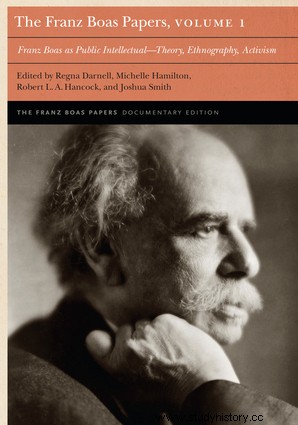
On a cold winter's day in 1942, Franz Boas suffers a fatal heart attack on the Columbia University campus. His death was devastating to many because there was still so much to learn and expand on his captured ideas and theories.
To illustrate, a collection of his essays, articles and personal lectures was edited and published in an additional book. The book, entitled "Race and Democratic Society", was an immediate success as many of his followers became thirsty for his knowledge.
In addition, the literary work was given the status of the most prized works by Franz Boas. He was eighty-four years old, but gave a lifetime of seeds that play strong roles in modern society.
Although Franz Boas passed away, his spirit of perseverance and general influence continued to play a role for future generations.
Franz Boas' inheritance
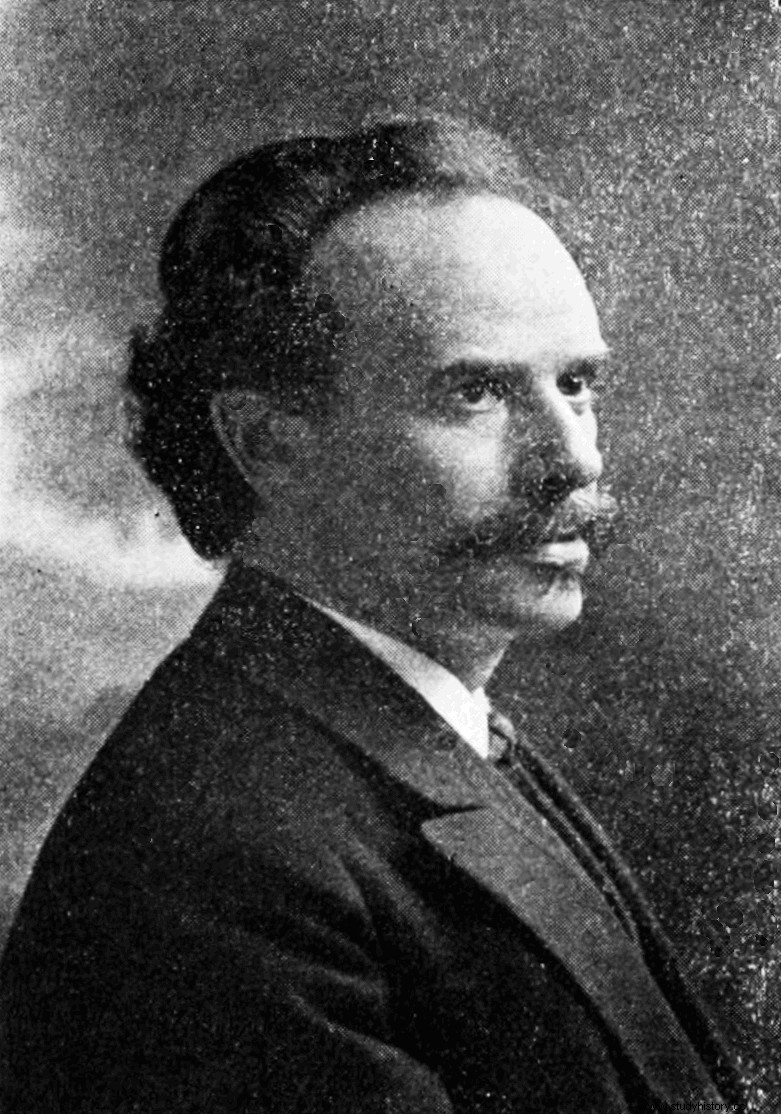
With the rise of anthropology spreading and gaining a place in universities, the doctrine is rotating back to Franz's teachings. In addition, Franz Boas was also a leading figure in the establishment of the American Anthropological Association.
This organization stands as a stronghold for modern anthropologists in America to refer to. With all this information at hand, it will prove that with dedication and perseverance you can reap greatness.
Franz Boas became an influential figure for many because he perfectly mimics these qualities. It all starts with a wish, a dream and an action.
When you set reality in motion, there is a rewarding emergence of consequences. It's unique because all of this would not have been possible or existed if Franz Boas never changed his career path.
The first Canadian expedition he took was a catalyst for something big for academia. He mainly earns prestige as a leader.
Bonus reputation created by Franz Boaz
To add, Franz Boas continues to have a lasting reputation and dominance in anthropology. Many anthropologists embrace Franz's ideas and approaches to empiricism and cultural relativism.
Another factor is that they follow his example in that field researchers apply completely to the cultures they study. In a way, Franz Boas' actions catalyze many actions that take place today regarding anthropology.
He is seen as a positive example in history because he became a person who fought to fight prejudice. Franz imitated a character of being outspoken and took a stand to prove himself.
All things considered, Franz Boas is a good role model in terms of anthropology and moral character.
The Meaning of Franz Boas "The Father of American Anthropology"
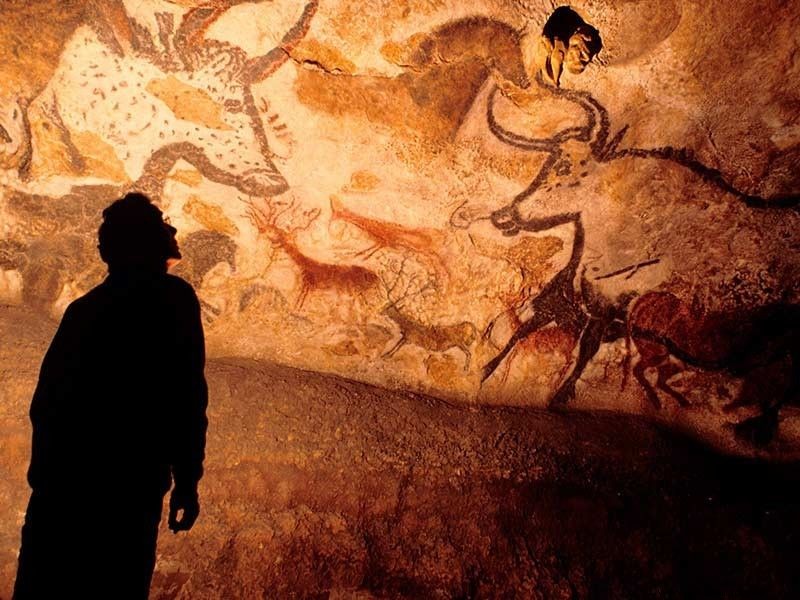
From a humble beginning, fascination with culture and a desire to educate a lot, Franz Boas becomes a leading figure. He will always be known in history for being "The Father of American Anthropology" and providing his expertise.
In a world full of misconceptions about race, Franz defied all odds through his work. This is one of the main reasons why he is widely celebrated in today's America and globally.
Anthropology is a unique approach and discipline to follow because it removes forgetfulness and promotes understanding. Followed by paths to see other perspectives in a new light.
To this end, Franz's ideas continue to play large and influential roles in modern society and strive to enlighten. His story will serve as inspiration for many generations to come.
Works Cited
Franz Boas, father of American anthropology (thoughtco.com)
Franz Boas - Wikipedia
Firefelt's approach - Wikipedia
Chapter 10. Language, race and culture. Edward Sapir. 1921. Language:An Introduction to the Study of Speech (bartleby.com)
Franz Boas - Biography, Facts and Pictures (famousscientists.org)
